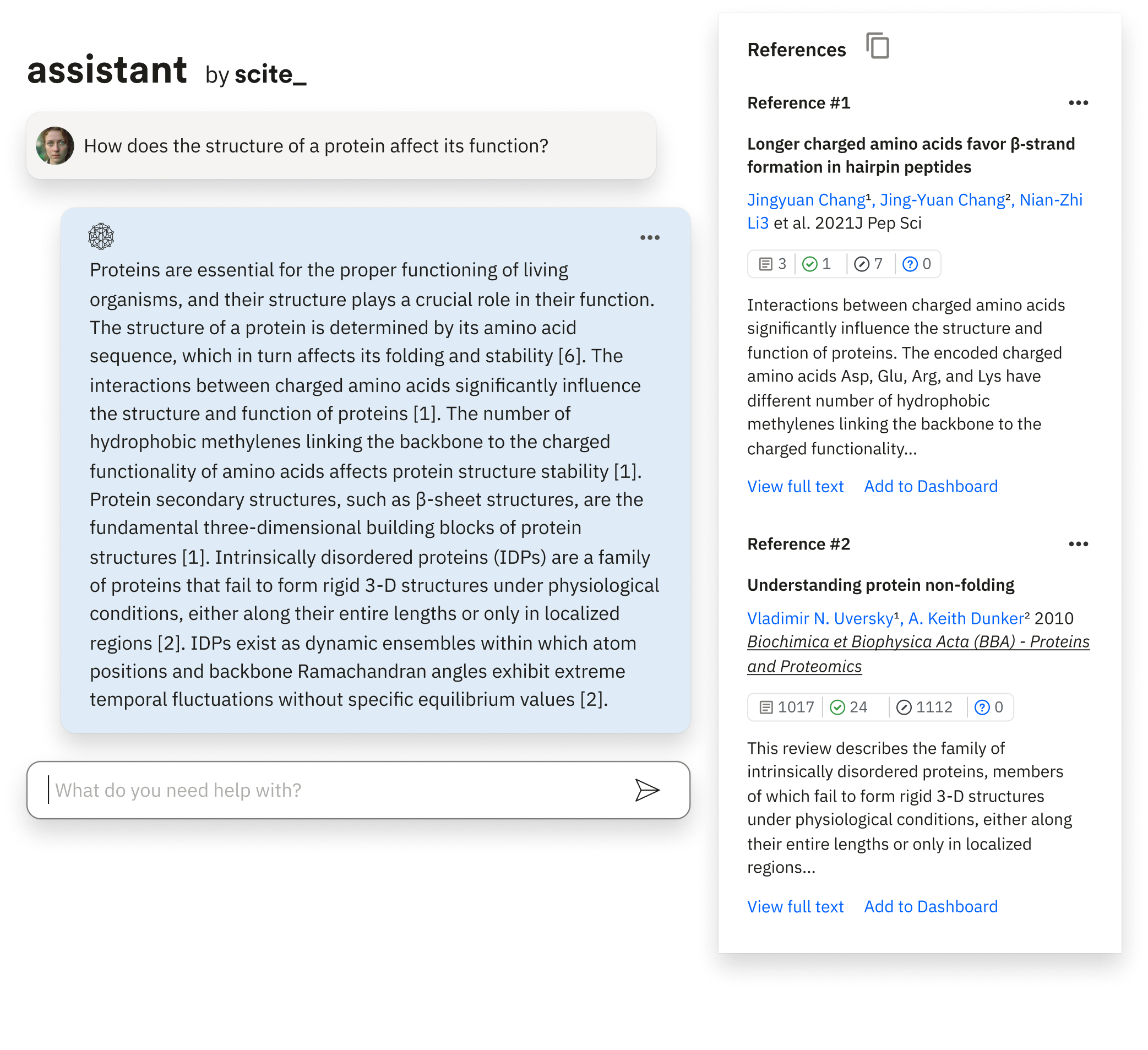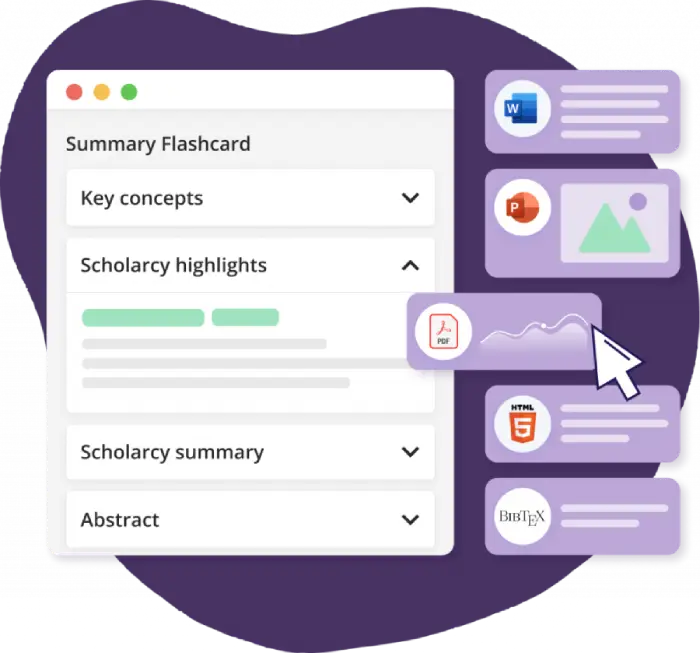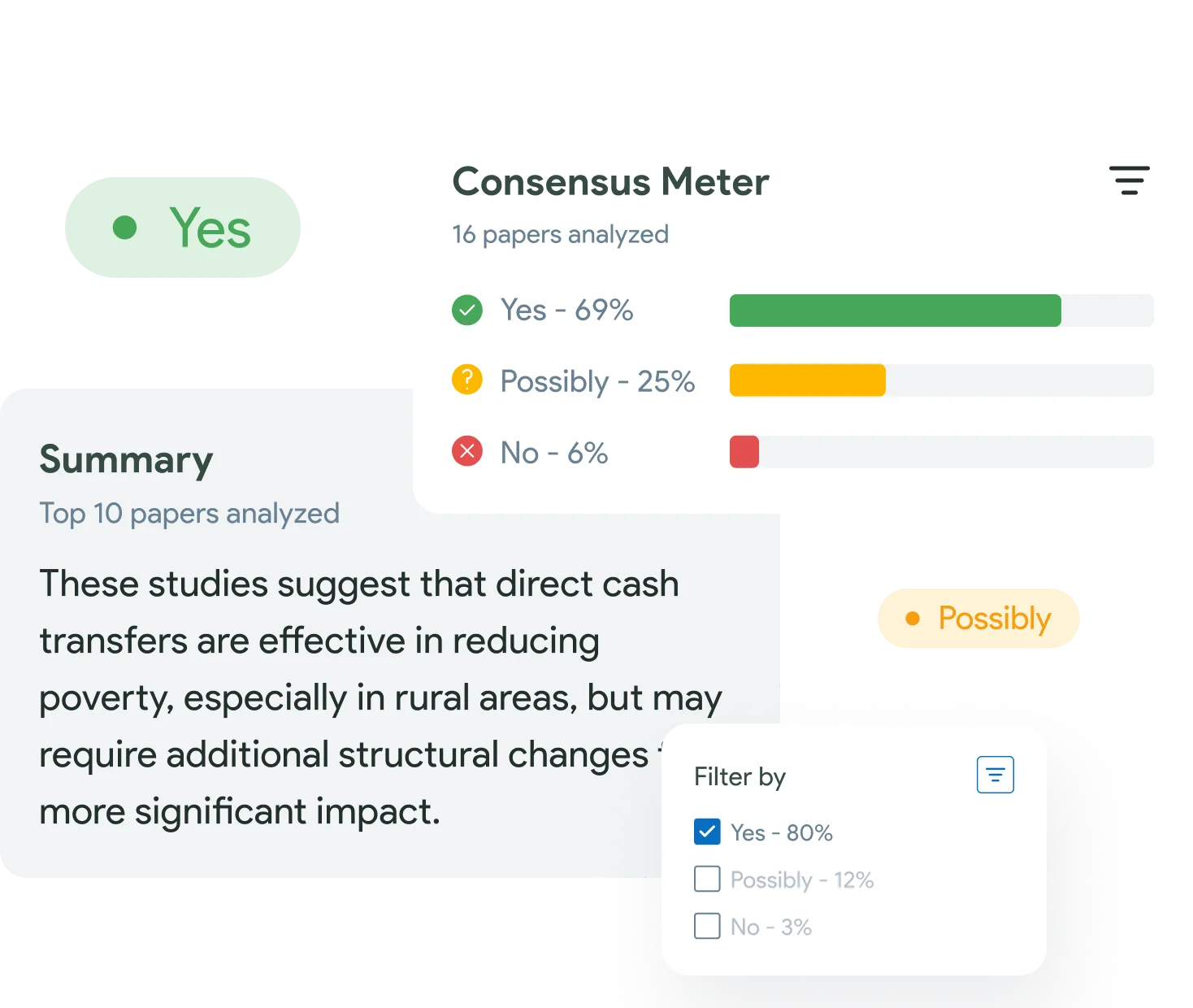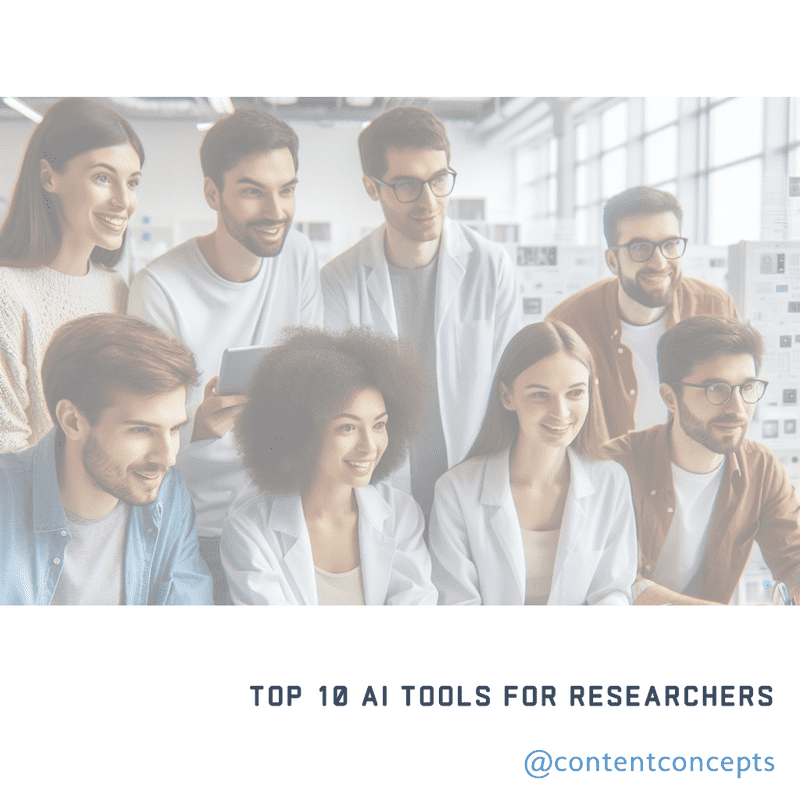Top 10 Generative AI Tools for Researchers
AI isn't just about efficiency in research, it's about revolutionizing how researchers think. AI tools act like tireless peer reviewers, manuscript editors, help refine hypotheses, and connect your work to broader contexts. Transform your research from focused to impactful – unlock the power of AI-assisted critical analysis.
Here is a list of top AI tools for academic researchers.
1. Scite

- How it helps: Analyzes citations to help you determine the validity and reliability of previous research. Scite lets you see if a paper has been supported or contradicted by subsequent studies.
- Key features: Smart citations, visualizations of citation context, ability to filter papers based on citation sentiment.
2. Scholarcy

- How it helps: Summarizes and extracts key information from research papers quickly.
- Key Features: AI-powered literature summarization, knowledge graph visualization, finding related papers and concepts easily.
3. Research Rabbit

- How it helps: Discover new research papers and organize your research process.
- Key features: Recommendations for similar papers, building collections of papers, adding notes and highlights.
4. Elicit
- How it helps: Find the most relevant research papers for your work from a large body of literature.
- Key features: Uses language models to understand your research question and pinpoint relevant studies, even if they don't use the exact same keywords.
5. Consensus AI

- How it helps: Designed to answer challenging scientific questions directly from within research papers. It doesn't just provide links, it extracts the answers.
- Key Features: AI-powered search tailored to scientific literature, focuses on providing clear answers within the research itself.
6. Litmaps

- How it helps: Helps visualize the connections within a field of academic research.
- Key Features: Interactive maps that show the 'landscape' of research, revealing connections between papers that might not be obvious within traditional searches.
7. SciSpace
- How it helps: This tool is a powerhouse for reading, understanding, and even writing your own scientific papers.
- Key Features: Huge database of scientific publications, AI-powered summaries to get the core concepts quickly, and tools to assist your own writing process.
8. Scisummary
- How it helps: Takes long, complex scientific papers and summarizes them quickly and accurately.
- Key Features: AI-driven summarization specifically trained on scientific papers, helps identify the most important findings within the research.
9.Connected Papers

- How it helps: Builds visual representations of relationships between academic papers. Think of it like a mind map for research!
- Key Features: Graph-based exploration to see how papers influence each other, finds similar works, and helps you trace the origins of ideas.
10. Notebook LLM
How it helps: A versatile tool that blends the power of information gathering, organization, and writing assistance – all with an AI-powered edge. It's designed to streamline and enhance the research and writing process.
Key Features:
- AI-Assisted Note-Taking: Integrates information from various sources (docs, web, etc.), automatically generating summaries and identifying key topics.
- Question-Answering: Asks questions directly about your notes and sources, making fact-checking and exploration much more intuitive.
- Drafting Assistance: Generates text drafts, outlines, and brainstorms ideas, offering a springboard for your own writing.
- Source Integration: Seamlessly manages references and citations, ensuring the integrity of your work.
Tagged withAI for research, AI research tools, Research automation, AI-powered research, Academic research tools

